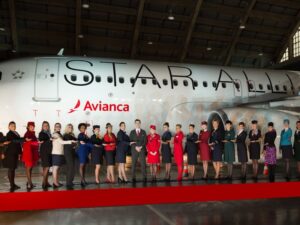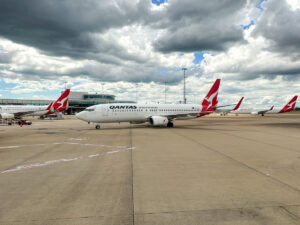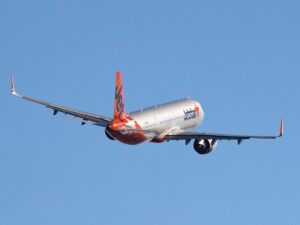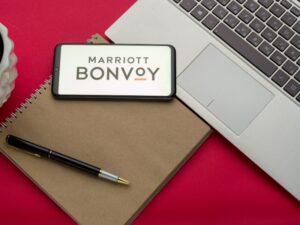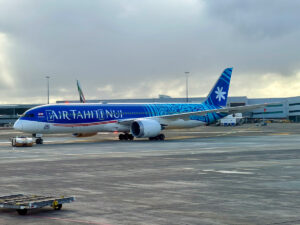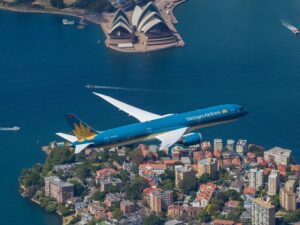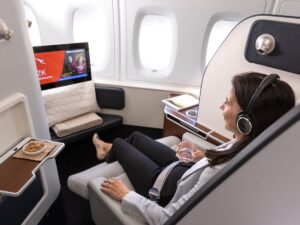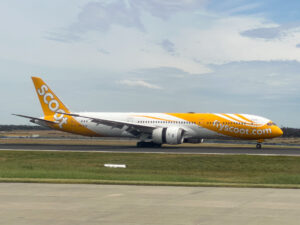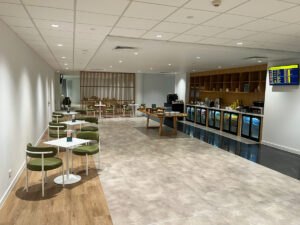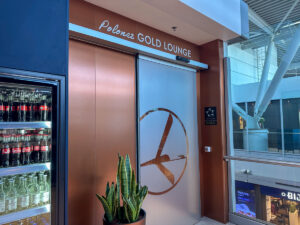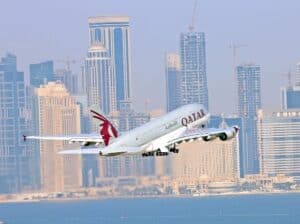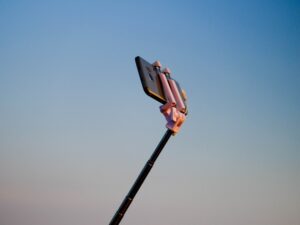
If you ever see a Facebook post inviting you to comment, share or like the page to win a “Quantas” First Class flight, it’s almost certainly too good to be true!
Time and time again, scammers create fake pages on Facebook or other social media platforms purporting to belong to an airline (or another well-known organisation). These pages typically encourage readers to interact with the post, complete a dodgy survey, or like & follow the page, in exchange for a prize or a competition entry. It’s been happening for years, yet these fraudulent pages just keep appearing.
Here’s an example of a fake page that was created just a few weeks ago (but so far only has two followers):
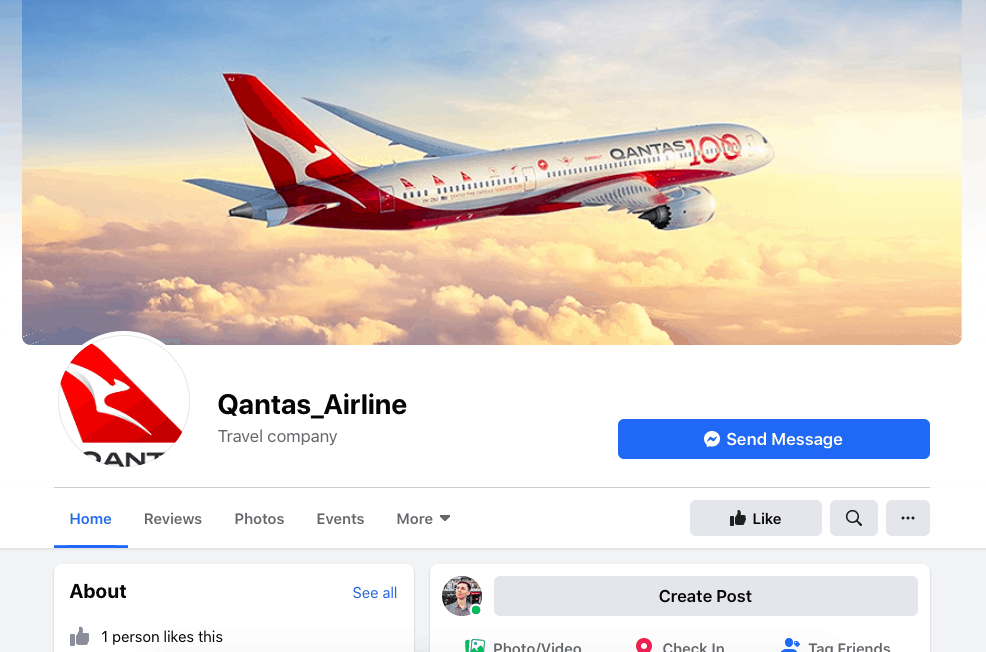
The page’s name should give away that this is fake (the official page is simply “Qantas”). Hilariously, the website address listed on the page information is actually the Qantas website… but the email contact address listed is somebody’s private Gmail address.
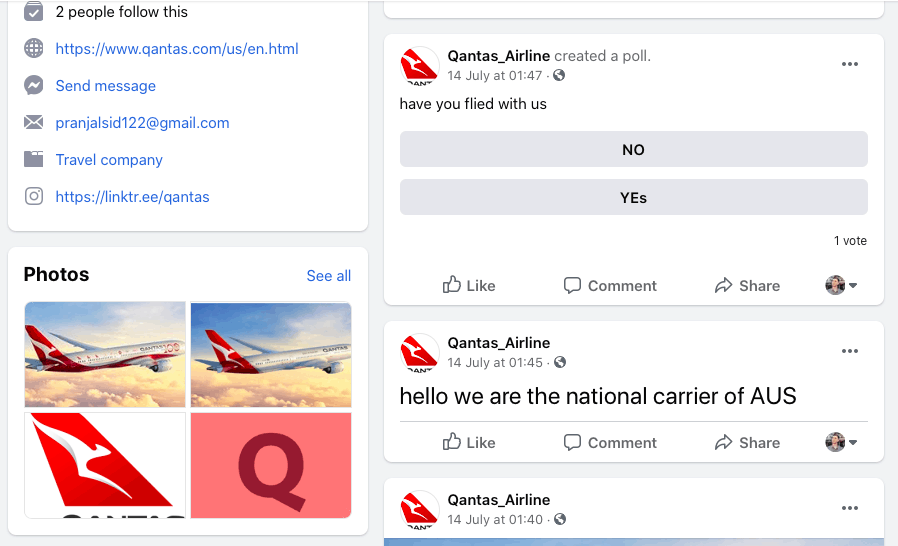
Here’s another example. Some people have even left reviews on this fake Qantas Facebook page…
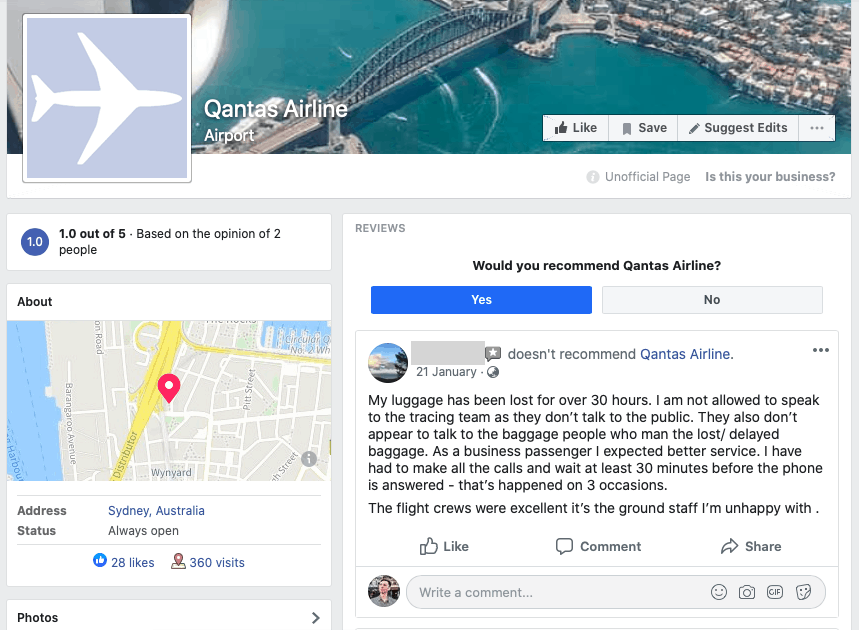
Qantas is never going to give away free flights, upgrades, lounge passes or anything else to people that share a social media post. Nor will any genuine airline, for that matter. Yet, so many people fall for these scams over and over again!
Why do fake airline Facebook page scams exist?
There are two main reasons that somebody might create a fake Facebook page.
The most common fake airline giveaway scam is done to collect data which is then sold to third-party advertisers. Gullible Facebook users are invited to click on a link to a website claiming to belong to the airline. Once there, users will be asked to provide some personal information in exchange for the “free tickets”. Often, the information provided will be sold and used to spam unsuspecting people with unwanted calls, letters, emails and texts.
After completing the online questionnaire, participants are told to share the post or comment something along the lines of “thanks for the tickets”. This then spreads the post to the Facebook user’s friends and helps it to reach more people – helping the scammer to collect even more data and make more money.
Another type of scam involves asking Facebook users to like and follow the page in order to win a prize. That’s exactly what the owner of this “Qantas Holiday” page tried to do. The free Qantas vacation package and $5,000 prize sounds too good to be true because it obviously is…
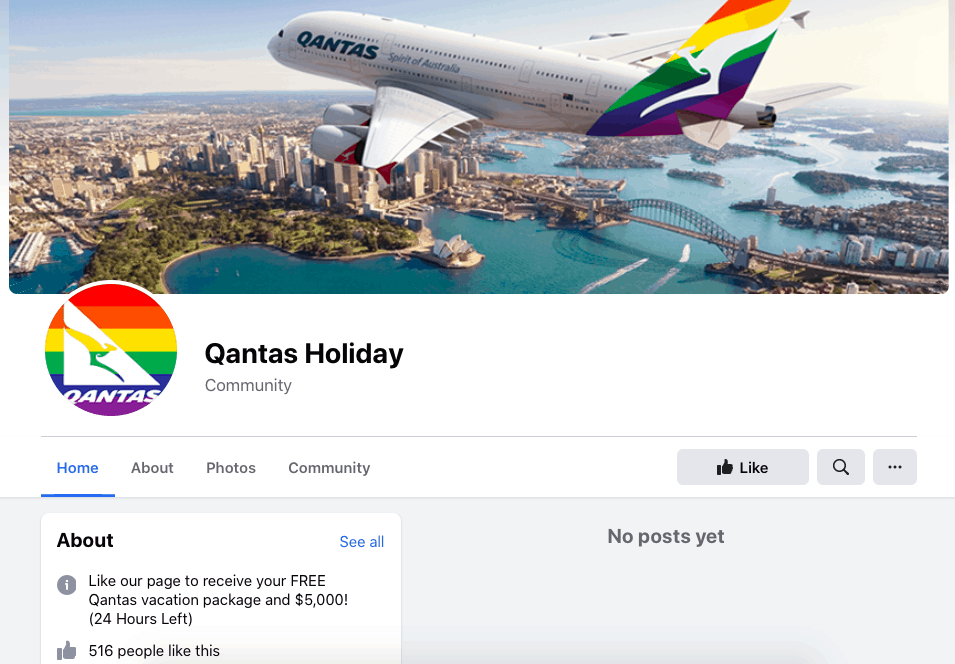
With these types of scams, the owner of the page is generally trying to build up a large number of page followers. They can then sell the page, with all its followers, to an unrelated business which then blasts the page’s followers with advertising or other scams.
This particular scam is now less common, however, as Facebook now alerts the followers of a page when there is a name change. (That happened when Woolworths Rewards changed its name back to Everyday Rewards recently, as an example.)
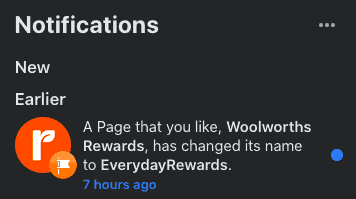
It’s also possible that a scammer could ask for your frequent flyer account details. It goes without saying that you should be very careful here!
How to know if it’s an official social media page
There is only one official Qantas Facebook page. Like all verified business pages, it has a blue tick next to its name.
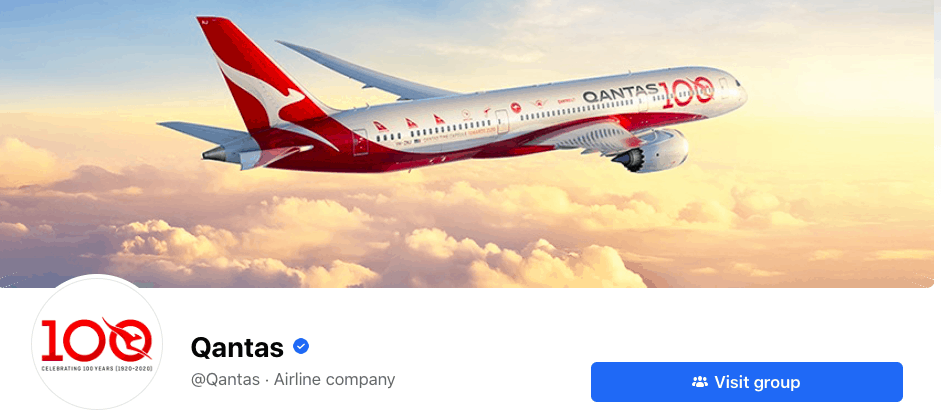
Some scams can also arrive by email or SMS. Qantas has the following tips on red flags to look out for:
Qantas will never ask for details including bank account, credit card, PIN or passwords on email or surveys.
Be aware of email domains with additional numbers or variations. Genuine e-mails will always come from an e-mail address ending in @loyalty.qantas.com, @qantas.com, @e.qantas.com and @qantas.com.au such as the address [email protected].
If you think your personal Qantas Frequent Flyer details have been compromised then call the Qantas Service Centre on 13 11 31.
These and many other scams are discussed on this Australian Frequent Flyer forum thread: Scams like these


